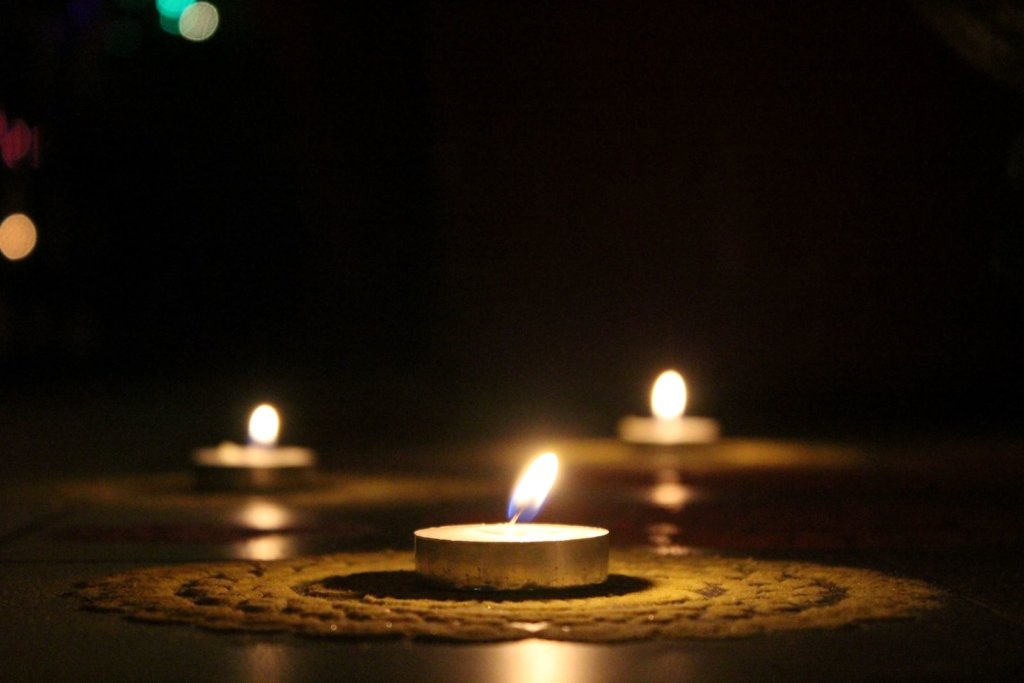It’s gusty where I am right now and outside my window I can see wisps of plant matter floating through the air. It feels like a metaphor for my life right now, and not just mine, but our society in general. Strong winds keep unsettling us, thrusting us in new situations. As I check social media, I see a lot of disbelief and dismay regarding the impeachment trial of Donald Trump. (And also some jokes.) Did any of us think we’d wind up here? I sure didn’t.
As I ponder the “why” of it all, I think about a conversation I had with dear friends of mine. I told them I noticed there’s a tendency for men who mistreat nature to also mistreat women. For instance, Trump continues to rollback environmental protections and he’s on record saying he can grab women by, well, you know the quote. Unbeknownst to me until recently, my observation is the premise of ecofeminism – a movement that sees a connection between the exploitation and degradation of the natural world and the subordination and oppression of women.
It makes sense because both the mistreatment of women and the plundering of Earth start with objectification. I don’t think Trump views women (or minorities for that matter) as people and instead reduces them to neatly packaged labels and harmful stereotypes. For instance, “Mexicans are rapists and drug dealers.” He and others like him view people and the environment in transactional terms: “What can I get?” They think about how they can benefit the most financially or in terms of acquiring power.
When Trump was first elected, I heard many people remark that they wanted a businessman at the helm of the United States. That aspect appealed to them. What people neglected to factor in is businessmen usually care first and foremost about profit, and when profit is the bottom line, people and the environment get reduced to objects. Soul is taken out of the equation. And “soul” is not limited to humans, in my opinion. I think even trees have souls or consciousness because more and more research emerges that trees talk to each other, support each other, and behave in ways that we never imagined. The same is likely true for other animate and inanimate objects.
To tie in my spiritual practice here, an ethical principle I live by is brahmacarya. It means “to remain attached to Brahma,” or Cosmic Consciousness, or Source, or whatever term you want to use. My spiritual teacher says, “Whenever people do some work or think of doing any work extroversially, they look upon the object, with which they come in contact, as a crude finite entity. Because of their constant aspiration for material achievement their mind is so engrossed in material objects that their very consciousness becomes crude. The meaning of practicing brahmacarya is to treat the object with which one comes in contact as different expressions of Brahma and not as crude forms.”
I know some traditions define brahmacarya as abstinence. I think that’s a definition that evolved over time because if you think about it, a lack of brahmacarya means objectification, and that can lead to sexual misconduct. To avoid sexual misconduct and to simplify matters, people started equating brahmacarya with abstinence.
To go back to Donald Trump, there’s nothing I can do to encourage him to “re-soul” the people and things in his life, but perhaps I can spur the people around me to engage in brahmacarya. It’s hard to constantly think of something as an expression of an infinite loving consciousness, but it’s more than a mental exercise. It’s also our actions. When you see a moth fluttering inside your house, do you kill it without a second thought? Or do you try to trap it and put it outside? When something breaks do you try to fix it or do you immediately throw it away, thereby increasing the environmental impact? All of these actions matter because it’s our way of saying plants, animals, people, our environment, are sacred, and it’s our way of reintroducing soul into what often seems like a soul-less world. And I’m all for more soul.
I dream of a world where we treat everything as a different expression of Cosmic Consciousness. A world where we stop objectifying everything and everyone because we see there’s more beneath the surface than we previously imagined. A world where we “re-soul” our planet by recognizing everything matters and we act accordingly.
Another world is not only possible, it’s probable.
Right now, all over the world people are celebrating Diipavali or Diwali, a festival of lights that symbolizes the spiritual victory of light over darkness, good over evil, and knowledge over ignorance. There’s something interesting for me about how Diipavali is coinciding with the fires in California. I know October is a dry month for California so it’s no surprise my beloved state is on fire, but there’s something especially poignant about the timing of it all.
What I mean is it’s coming to light, pun intended, that Pacific Gas and Electric, the utility company in northern California, is responsible for the blazes raging both currently and last year. Last year an entire town, Paradise, burned to the ground due to PG&E’s negligence, and prompted the company to file for bankruptcy. The utility company has known about the trouble with its equipment for decades and didn’t upgrade it. It’s only now that we can pin the blame squarely on PG&E’s shoulders that something is being done about it.
What I’m seeing over and over again is corruption floating to the surface. Secrets are emerging, we’re shining a spotlight in the dark corners, and watching cockroaches scuttle away. Not only with PG&E, but with the impeachment inquiry as well. Shady practices that Trump engaged in are emerging and the majority of us are saying, “No. This is not OK.”
However, unlike with Diipavali where good has triumphed over evil, I don’t think we’re there yet. Instead, we’re in the day before Diipavali, metaphorically speaking. The day before the festival is supposed to be the darkest day of the year when it seems like light will never win. It’s a question I’ve been asking myself lately. I cannot express how angry I am at PG&E, as well as the behavior of corrupt politicians and CEOs. I want to shake everyone by the shoulders and say, “No, no, no! You can’t do this!”
I’m pretty sure I’m not alone here. I notice a swell of anger and frustration erupting but where is it supposed to go? What are we supposed to do? Some are taking to the streets. Others are writing petitions or conversing with elected officials. I’m doing the same but it doesn’t feel like enough. And then I think about Diipavali. The word comes from dīpa, which means lamp or light, and āvali, which means a row, a range, continuous line, series. Essentially a lot of little lights can conquer darkness. One by one by one our actions add up to something bright and Diipavali reminds me of that.
I dream of a world where we have faith light drives out darkness. A world where we believe good conquers evil. A world where we remember our little actions coalesce into something bigger than us and creates a better world for all of us.
Another world is not only possible, it’s probable.

